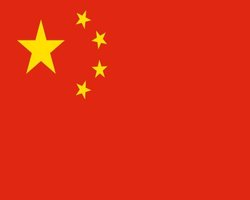China’s exports fell in September, surprising experts who had generally expected to see a rise.
The General Administration of Customs in China said weak global demand and the elimination of counterfeit invoices from official data contributed to the fall in exports.
A Bloomberg News Survey reported expectations of a 5.5% gain in exports.
September shipments of goods abroad were 0.3% lower in September 2013 ($185.6 billion) compared to the same month last year.

Zheng Yuesheng, deputy director general of the customs agency’s statistics department, said:
“China’s dependence on external demand weakened. This shows China’s economic development has transformed from being driven by external demand to domestic demand.”
Li Keqiang, Premier of the People’s Republic of China, may have to review his goal of 7.5% expansion for the country’s GDP for 2013. Last week, the IMF (International Monetary Fund) cut global expected growth.
China exports fall to Europe, rise to U.S.
While exports were lower to the European Union, Taiwan, Australia and South Korea, they rose 4.2% to the U.S. (lower than the 6.2% rise seen in August). Exports to ASAN (Association of Southeast Asian Nations) fell 9.8%.
Over-invoicing of exports, commonly used to disguise capital inflows, may have inflated 2012 export figures, analysts at Citigroup Inc. and Credit Agricole told Bloomberg News.
China exports fall while imports rise
Yuesheng informed that imports increased to $170.4 billion, after rising 7% in August. He added that this is a positive sign for China’s efforts to reverse an economic slowdown.
Louis Kuijs, an economist at RBS in Hong Kong said in an interview with the Sydney Morning Herald “Looking ahead, export data may be quite weak in the coming months.”
Kuijs added that expectations that the U.S. Federal Reserve would cut its $85 billion per month bond purchases led to capital outflows from the region which hit demand.
China exports fall and the Yuan rises
Many experts say that China’s sliding exports are a natural consequence of the rising Yuan.
According to the Financial Times, crude imports into China hit a daily record in September, making the country the number 1 crude oil importer worldwide.

